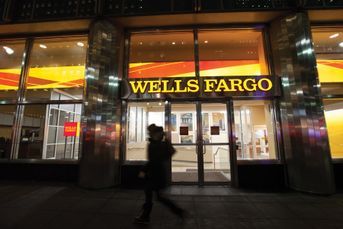Deeper shade of bonus blues on Wall Street
It’s not just the heat and humidity making Wall Streeters sweat this month – it’s their bosses. Investment…
It’s not just the heat and humidity making Wall Streeters sweat this month – it’s their bosses.
Investment bankers at Goldman Sachs & Co., Merrill Lynch & Co. Inc., Salomon Smith Barney Inc. and other brokerage houses are being told that critical year-end payouts – typically up to 80% of their compensation – could be half as much, on average, as they were last year, experts say.
“You couldn’t do this a couple of years ago, because people would just go elsewhere,” says Rik Kopelan, head of Capstone Partnership, a New York recruiting firm focused on financial services. “But firms are not worried about that these days, because they feel they have more bankers than they need.”
Next to nothing
There are exceptions, of course.
For the best investment bankers, and for those in such hot fields as restructuring and bond underwriting, demand is higher than ever.
The trick for investment bank executives will be to hold on to such critical talent even as they talk down bonus expectations among other employees.
Wall Street leaders also have their work cut out for them to avoid having all their talk about lower expected earnings translate into fewer hours worked and less effort from staff members.
Despite the dim news, some consultants believe that Wall Street firms will be more generous at the end of the year than they currently are signaling.
“People are getting a clear perception that bonuses are going to be way down,” says Alan Johnson, a managing director at compensation advisory firm Johnson Associates in New York. “It’s not going to be as bad as people think.”
Mr. Johnson estimates that bonuses will fall only 15% this year. That would put total bonuses at about $8.5 billion, 40% off the peak of two years ago but a far cry from the sort of Draconian cuts many are talking about.
Indeed, some current and former investment bank executives forecast that bonuses this year could average as much as 50% off last year’s levels, which were 30% below the gilded peaks of 2000. As many as 15% of Wall Streeters, they predict, could get nothing.
“What we are seeing now is worse than the doldrums of 1980s and 1990s down periods,” says Michael Madden, who ran investment banking at Lehman Brothers and at Kidder Peabody in the late 1980s and early 1990s. “There will be many more `no bonus’ talks this year than there were in those periods.”
The rationale behind acting early is clear. Business conditions on the Street are now the worst since the 1970s, when the stock market plunged 40% in two years and took a decade to recover.
The recent market slump is taking a similar bite out of Wall Street’s business.
Total volume of initial public offerings sank to $35.6 billion in the first half of the year, from the already-depressed level of $53.8 billion in the first half of last year, according to Thomson Financial.
Mergers have fared even worse. The volume of announced corporate combinations fell to $589 billion in the first half of 2002, down from nearly $1 trillion in the first six months of last year and $2 trillion in the first half of the previous year.
On average, profits at the four largest New York securities firms fell 16% in the first half of this year despite furious efforts to cut costs – especially in the largest single expense area, personnel.
In the last year, 20,000 people working for Wall Street firms have lost their jobs, which paid, on average, $248,500 as of 2000.
Against that sort of backdrop, even huge reductions in bonus payments suddenly don’t look so bad to many Wall Streeters. At least they still draw salaries.
Recruiters say firms have a lot more to gain this year by being upfront early about year-end pay. With layoffs rippling across the financial sector, it’s hard for employees to complain about the lack of bonuses when the guy at a neighboring desk is packing his stuff.
It also will be easier for the firms to negotiate lower severance packages if the people who are leaving believe that they wouldn’t have gotten a bonus anyway.
In fact, recruiters say Wall Street firms are gearing up for another round of layoffs to start after Labor Day.
Learn more about reprints and licensing for this article.






